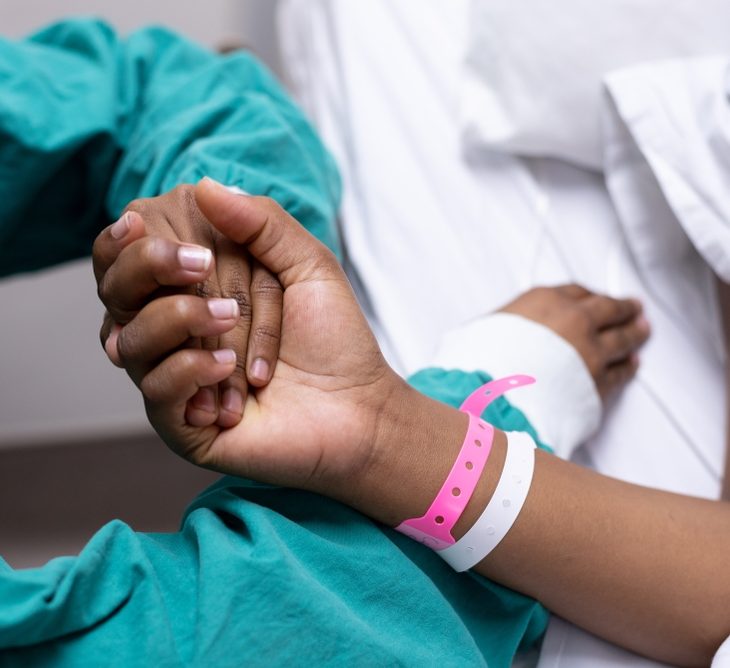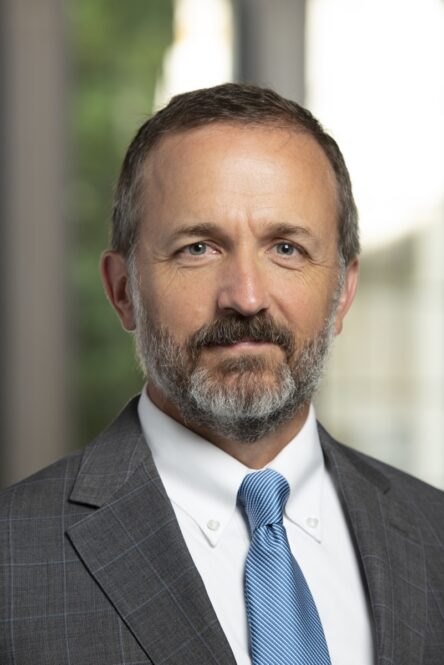The Importance of Creating Space for the Sacred in Care of the Sick
March 11, 2022

When Farr Curlin began his medical training in 1998 at The University of North Carolina, Chapel Hill, he felt a sense of conviction that the practice of medicine could fit well into his vocation as a Christian. “Love God and love thy neighbor” was the philosophy he grew up with, and he knew Christians helped make incredible innovations in medical history– from building hospitals to advancing medical knowledge — and how, even today, caring for the sick is seen as a worthy practice.
But at school, he was struck by the lack of opportunities in the field where medical educators could invite students or other trainees of diverse faiths to consider how their religious faith informs or has historically contributed to the practice of medicine. He found most medical practitioners operated under this idea that religion belonged to the personal world and shouldn’t be talked about in the professional world.
Share
Related Articles
American Civic Life
American Civic Life
Higher Education

Dr. Farr Curlin, co-founder of the Conference on Medicine and Religion
“I found it intellectually and spiritually dissatisfying,” says Curlin, Josiah C. Trent Professor of Medical Humanities in the Trent Center for Bioethics, Humanities and History of Medicine, and Co-Director of the Theology, Medicine and Culture Initiative at Duke Divinity School.
He adds, “I longed to create space for people to take seriously the substance of faith, not just to treat religion … like a personal coping mechanism.”
Driven by his desire to develop opportunities for education and scholarship at the intersection of theology, medicine, and culture, Curlin and his colleague, Dr. Daniel Sulmasy, now the director of the Kennedy Institute of Ethics, co-founded and launched The Program on Medicine and Religion at the University of Chicago in 2009. Later, in 2012, with a grant from the John Templeton Foundation, they organized the first Conference on Medicine and Religion, inviting doctors, nurses, and public healthcare workers from across the country to explore the intersection of religion and medicine.
This year, from March 13-15, the Conference will host its 9th annual convening in Portland, Oregon. In conversation with Interfaith America’s Silma Suba, Cullin talks about the importance of a convening of this caliber, the lessons learned from past gatherings, and what people attending this year can look forward to learning.
What’s your vision for the Conference on Medicine and Religion?
From the outset, we were clear, and have remained clear about this, that the conference is focused on the substance of faith. Meaning we don’t want to just talk about spirituality, but the substance of faiths like Judaism – its traditions, ethics of practice, its innovations historically, how does it inform healthcare? How do Christianity and Islam inform the ethics and practices of medicine? The conference is about creating a space where people interested in this intersection of religion and medicine can come and present their ideas to each other, and participate in dialogue, and think critically about how religious traditions inform the work.
What the conference does that’s unique is it kind of sets aside the social expectation that whatever you’re going to present about, you’re going to have to translate into a secular language or a kind of unthreatening language of spirituality. Instead, it invites people to talk about things like Jesus, the Prophet, sin and grace and redemption, and all those kinds of topics that are really important to many people and are a part of their traditions. Ones that you can’t really translate into secular terms.
What’s the importance of hosting a convening of this caliber?
The folks involved in this conference have a shared sense of vocabulary, the language of talking about patient’s rights, patient’s autonomy, ethics, medical science, and religion, and so on.
Often, patients of faith who are in the face of loss, or face injury, are asking the ones taking care of them what kind of healing they should hope for? How are they going to go on with the kind of pain that won’t go away? How much effort should they give trying to remain healthy in light of the calling that they understand from God — to be devoted to other things, including loving their neighbors and serving other people, and not worrying about their own health. There’s also this sense or understanding that the ones taking care of them are cooperating with God, who is the only ultimate one that heals. This kind of religious language is sort of bracketed away from professional conversations.
I’d love to see this conference contribute in some small way to a world in which those who engage in health care develop fluency in talking about God, and hope, and what people fear, and what it means to love your neighbor, and what our obligations are regarding the body and, and all those kinds of religious ideas and that they become practiced in doing that. A world where the world of healthcare is hospitable to that kind of language and that kind of reasoning. So that people start to break this endemic habit of always treating this like a kind of dialogue that you do only in your church or synagogue, but not in the middle of the medical school or the hospital.
What do you hope people will benefit from attending this conference?
I would hope they take away that when people are drawing on substantive moral traditions, in this case, religious traditions, it makes for a much more interesting and compelling dialogue, and much more interesting and compelling issues are talked about compared to when they’re not. I hope they will find themselves hungry to wrestle as humans have wrestled for centuries, with what it means to be human and what we can know about God? What we might hope for and where we are destined for and then part of that, what are our bodies for? And why do we get sick? What might we reasonably hope for in light of our sickness? I hope they will find their interest piqued, that their questions get deeper, that they are more dissatisfied with just a procedural kind of ethic that diverts all of those questions to one of who’s authorized to decide for a patient.
This year’s theme is “Space for the Sacred in Care of the Sick.” What can one look forward to exploring at this convening?
It often seems as if the sacred is something that does not have space within medical institutions, that it is relegated to the private sphere. Yet, we know that people in various ways work to overcome that division and create space for the sacred within healthcare.
We hope in the conference that we hear about some of those efforts, that we can appraise them as to what extent they’re working, that people are finding new spaces for attending to sacred issues and religious issues within healthcare. I hope people learn that through dialogue with one another the ideas that are being replicated and developed, continue to be further in the future, and that people will learn from one another how to create more space for the sacred within healthcare.
You’re often referred to as an “ethicist” as your work focuses on the moral and spiritual dimensions of medical practice. Can you elaborate on how that informs your work?
In healthcare, people frequently disagree about what ought to be done. We have science that tells us what can be done and tells us what we can reasonably expect, but it doesn’t tell us what we ought to do. It doesn’t tell us how long to keep someone on a ventilator, or whether it’s okay to reconfigure secondary sex characteristics because of a person’s gender disposition. It doesn’t tell us what we should hope for in the face of loss. What’s a reasonable thing to ask of one another? What kinds of obligations do we have to one another.
The debate about how we ought to live, and what we ought to do in any number of particular cases within the world of healthcare is often described under the banner of medical ethics. I am trained in medical ethics at the University of Chicago. I’ve always been interested in medical ethics because I’m interested in knowing what the good is that we’re trying to seek in health care, and how I ought to live and how I want to practice. One of the most obvious ways that religious commitments influence people’s practices in medicine, and influence what patients ask for from their clinicians, is by shaping their responses to areas of ethical controversy. If you think of any medical practice that is attended by some level of public or professional controversy, I can tell you with a high degree of certainty that you will find that religious characteristics, including being not religious, account for much of the disagreement about that issue.
In my own scholarship, I have been trying to push past procedural ethics — which just focuses on what the law allows, who’s authorized to choose, what’s technically feasible, toward a more substantive ethical engagement in which we’d ask whoever is authorized to choose what was a good decision for them to make, what was a choice that would be morally worthy? And to ask that question is to face other questions that again religious traditions have a lot to say about.
Check out these other Interfaith America stories:
Remembering Dr. Paul Farmer and His Mission, an ‘Antidote to Despair’
How Catholic Theology Influenced Dr. Paul Farmer’s Vision for Global Health
Why Mental Health Professionals Need Religious Literacy
This article was originally posted on February 28, 2022.



